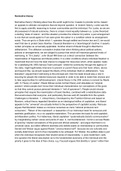Summary
Summary Intro to Political Science: L&M summaries
- Course
- Institution
- Book
This is a very concise summary of the chapters of L&M to read for Intro to Political Science. If you study from this plus from what's in the slides you'll definitely pass! :)
[Show more]




